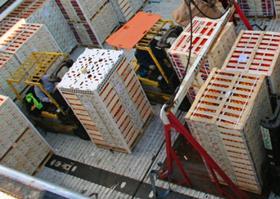
Spanish fresh produce associations have renewed their attacks against the European Union's new agreement of association, which they claim could “bring ruin” to much of the country’s fruit and vegetable sector.
With the European Parliament set to vote on the ratification of the trade deal – an update of the previous agreement of association – in the second half of 2011, several Spanish groups have stepped up their efforts to persuade delegates to reject its terms.
Murcia-based organisation Ibérica Hortofrutícola said that the deal, if ratified, would constitute a “new blow” for the Spanish region’s citrus sector, whose commercial interests it claimed would be “seriously threatened”.
For fellow Murcian fresh produce association Asaja Murcia, the coming into force of the treaty with Morocco, which is likely to lead to an increase in European imports from the north African country, will mean “the ruin” of the region’s agricultural sector.
The group’s general secretary, Alfonso Gálvez, said that one of the principal consequences of the agreement will be an increase in Moroccan tomatoes arriving in Europe between October and May. Currently, this totals around 233,000 tonnes each year, but he said imports were expected to reach 285,000 tonnes within the next five years.
Calling on the European Parliament not to ratify the revised agreement of association, Andalusia’s Hortyfruta claimed that its region’s producers had lost €70m since 2001 as a result of the previous trade deal.
The interprofessional association claimed Morocco had “continually not complied” with import quotas and market entry prices, during a period when its fruit and vegetable exports to Europe had risen from 172,033 tonnes in 2001 to 367,801 tonnes by 2009.
Rising production
Despite the concern over Morocco, Asaja Murcia said that data from the Spanish region’s Ministry of Agriculture indicated that Murcian citrus production rose by 15.8 per cent during the 2010/11 campaign, compared with the season before.
But, while the group said the figure could go some way towards revitalising an important part of the Murcian agriculture sector, it said growers were failing to receive fair prices for the fruit, as a result of retailers flooding the market with cheap products.
More positively, Asaja Murcia said there was an “optimistic” forecast for this season's grape crop, both in terms of quality and production, which is expected to reach 100,000 tonnes from 6,500ha.






No comments yet